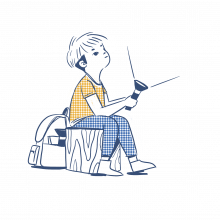When conflict becomes bullying

Not all conflict can be solved through conflict management and communication. Some conflicts are instances of bullying. Bullying is different to manageable conflict, and can occur in schools between staff, students, or in staff-parent/carer interactions. Bullying occurs because of malicious intent, an imbalance of power, repeat use, resultant distress, and ongoing provocation. School bullying may occur either in school settings, or outside school (online for example), but it is attributed to the relationships created in school settings.
There are several types of bullying, and different ways that teachers, schools, and parents and carers can help stop bullying at school. Bullying may be direct or indirect, verbal, physical, emotional, sexual, or cyber in nature. Bullying can have extremely serious consequences for victims, ranging from distress, disengagement, school refusal, and mental health consequences, including self-harm and suicide. Students, teachers, parents and carers, or community members can all be bullying victims.